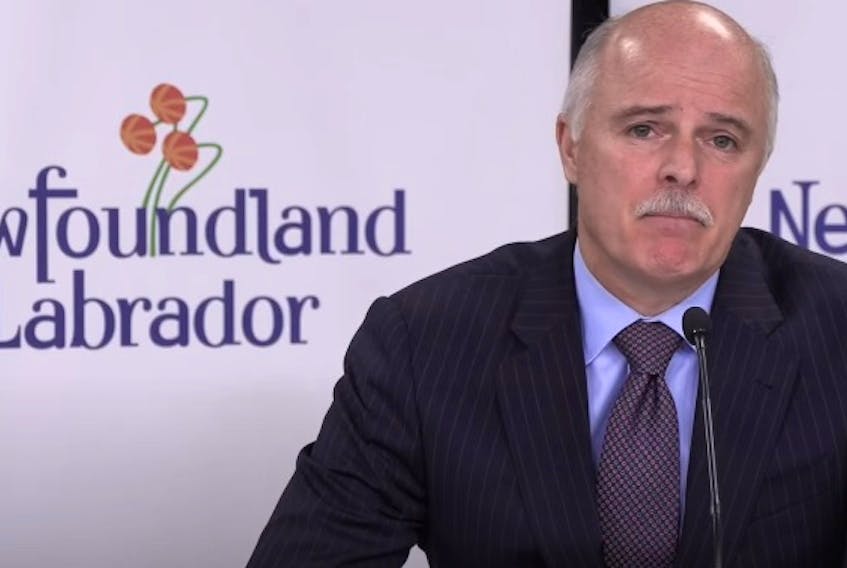ST. JOHN'S, N.L. — David Maher
The Telegram
@DavidMaherNL
The days of billion-dollar deficits have returned to Newfoundland and Labrador.
Finance Minister Tom Osborne on Thursday announced an updated $1.124-billion deficit for the fiscal year 2019-20.
Due to the accounting measures related to counting the Atlantic Accord, the province had projected a surplus of $1.56 billion, which has been revised down to $1.27 billion. Discounting the Atlantic Accord money to be coming over the life of the agreement reveals the updated deficit figure.
Osborne says the plummet in the price of oil and gas contributed to the increased deficit.
“On March 16, the price of a barrel of oil dropped below $30 US, remaining below that price for the rest of the fiscal year. In fact, by the end of March the price of a barrel of oil was below $20 US. Our 365-day average for oil dropped by $2 a barrel in less than a month.”
Osborne says the drop in oil prices reduced oil royalties to the province by $64 million. Overall, the province lost $181 million from oil and gas revenues, with lower prices and reduced production.
In total, the province took in $690 million less in revenues. Expenses fell by $34 million, softening the blow slightly.
The fiscal update doesn’t account for any changes in revenues or increased expenses beyond March 31, the end of the 2019-20 fiscal year.
“We can anticipate significant revenue impacts this year as a result of higher unemployment, reduced business operations and other COVID-19 related impacts. It would be reasonable to expect reductions in income tax, sales tax and so on,” said Osborne.
“Oil represents $1 billion in revenue for 2019-20. We anticipate we’ll be lucky if we see half of that this year.”
Osborne says he expects health-care costs to increase, but couldn’t provide a specific number. He says he plans to deliver a 2020-21 budget “as soon as possible.”
He says the province is going to need direct support from the federal government for the coming budget.
“We are not asking for a handout, we are asking for fairness,” he said.
Federal cabinet minister Seamus O’Regan says work is ongoing on some form of federal support for the province as part of the eventual federal budget, but could offer no details on Wednesday.
“The one thing you can count on is that we are there to support,” said O’Regan.
Osborne says the plan to return to surplus by 2022-23 is no longer possible.
The net debt of the province also continues to grow, as long as borrowing is required. The net debt is now at $14.2 billion, up from $13.8 billion projected in the original budget document.
The province has already borrowed $1.2 billion for the 2020-21 fiscal year — equal to how much it borrowed for 2019-20. In March the House of Assembly allowed for up to $2 billion in borrowing for the fiscal year. Osborne says it remains to be seen whether further borrowing will be necessary.
Once COVID-19 travel restrictions are lifted, Osborne says, the plan is to send a delegation from the government, the Progressive Conservatives and the New Democratic Party to Ottawa to discuss the fiscal state of the province.
Tory Finance critic Tony Wakeham says he’s interested in taking part in the mission, but he’s more interested in a full accounting of the province’s finances.
“Almost $400 million in the reduction in revenue was related to provincial taxes and other revenues. I know the minister kind of alluded to it, but he didn’t give any details. He alluded to ‘snowmaggedon’ and two weeks of COVID, but $400 million in three weeks?” said Wakeham.
“I want to know why, I want to know the details, and that’s one of the questions I’ll be asking in the House next week. Is this a case where you overestimated revenues you were going to take in, and that has contributed to our problem?”









